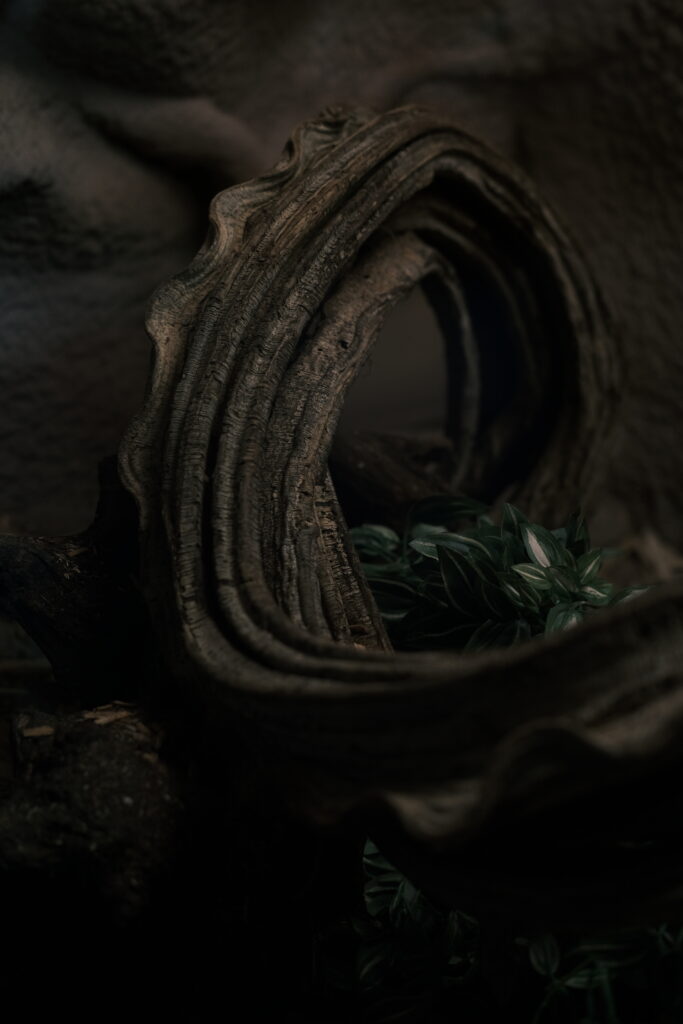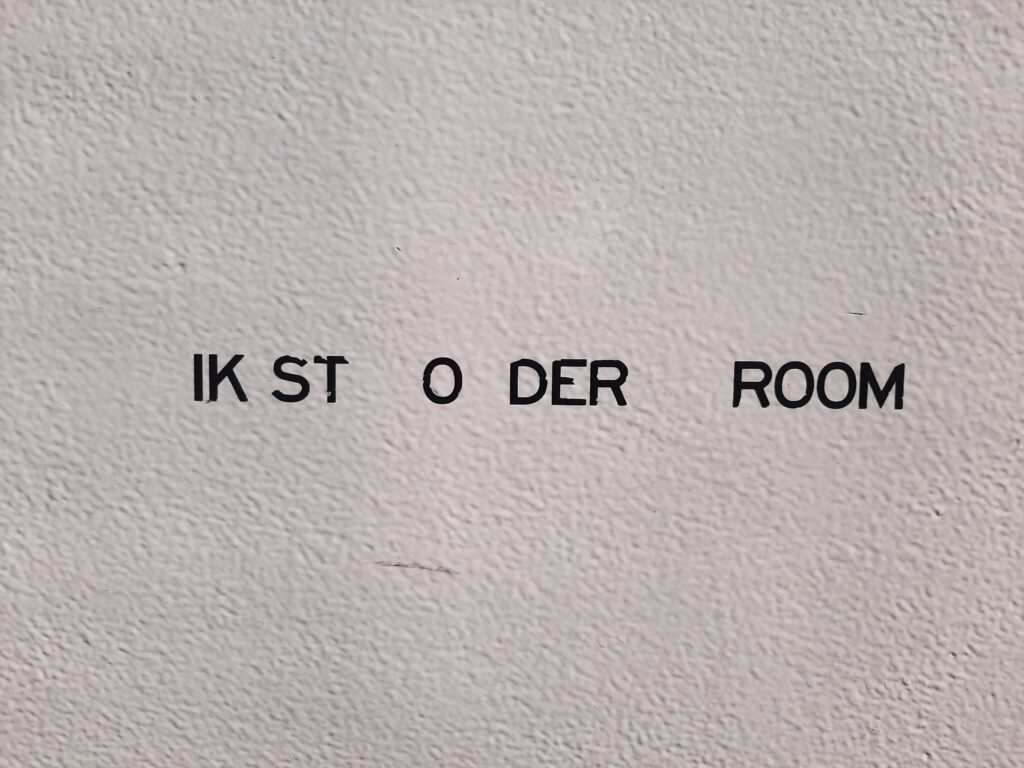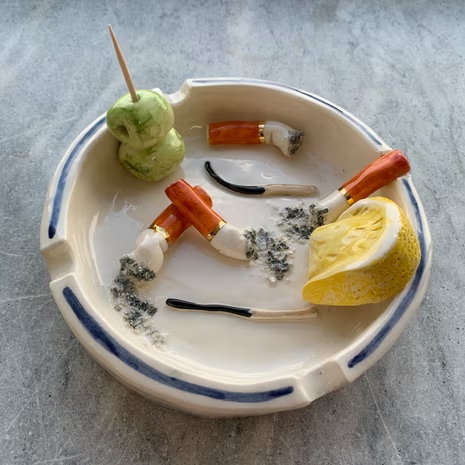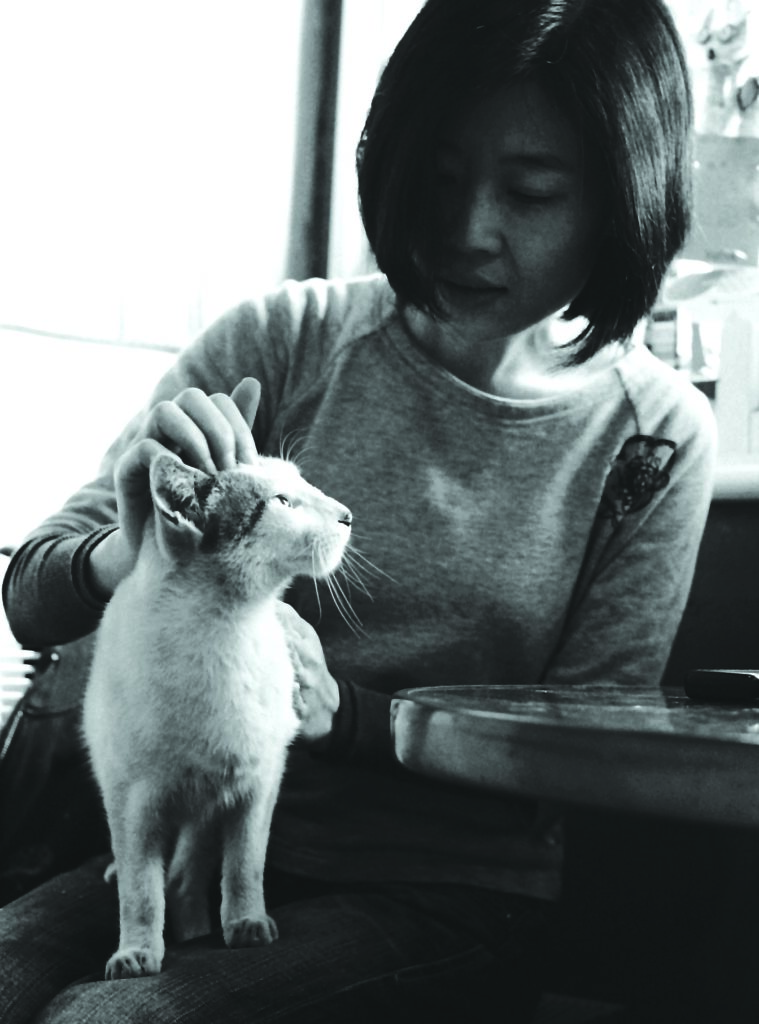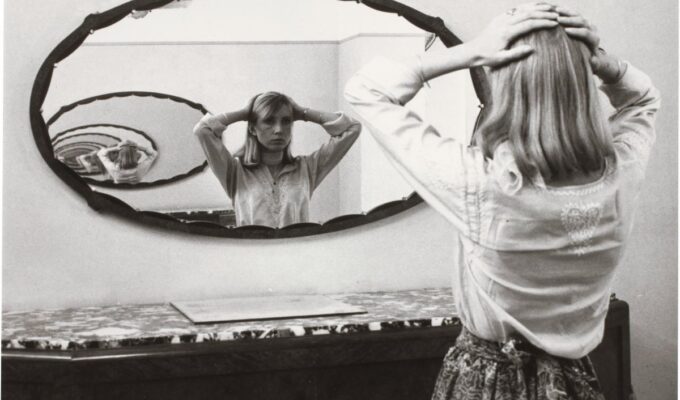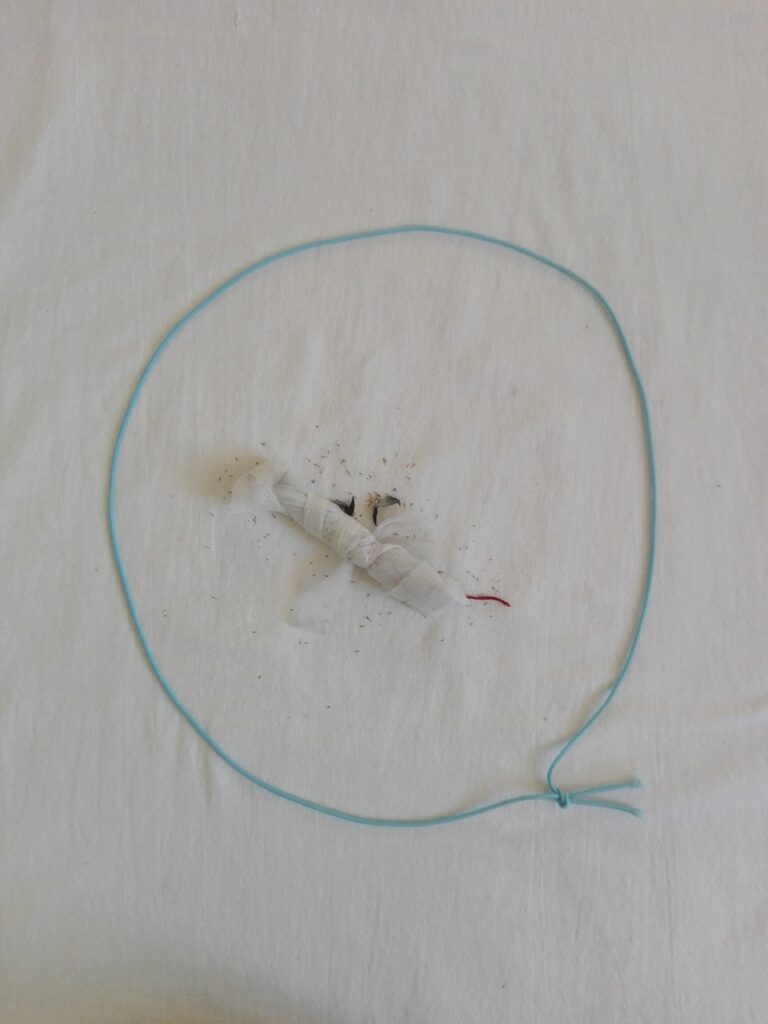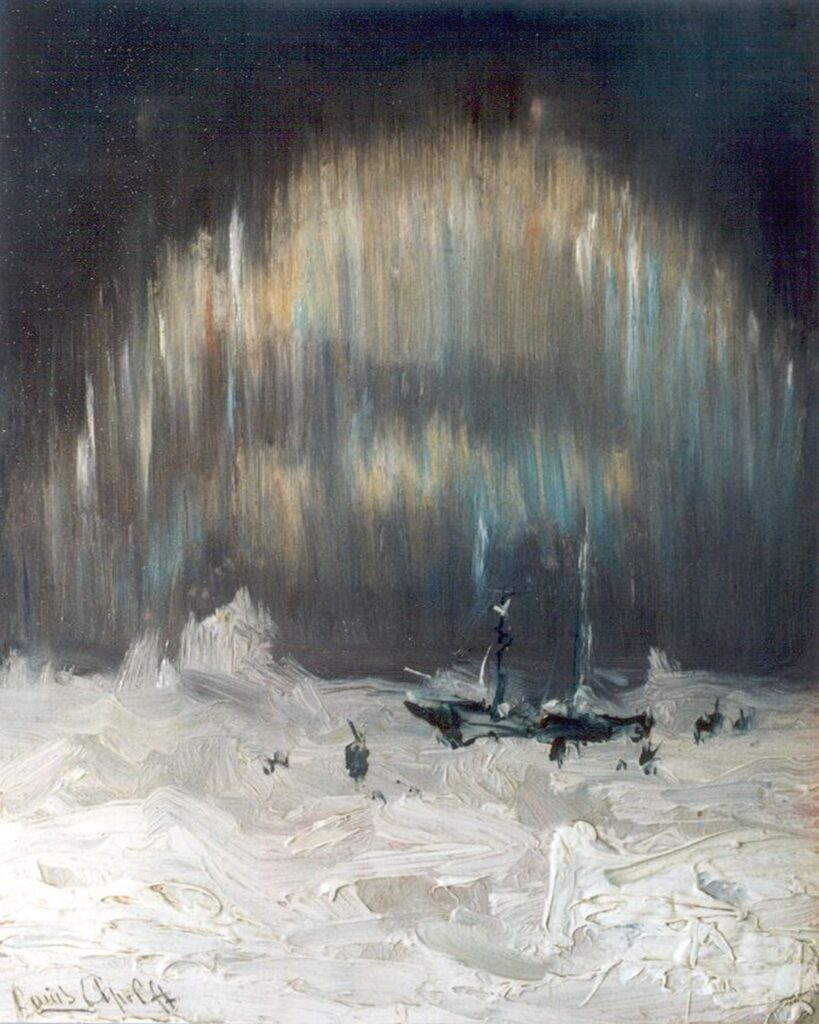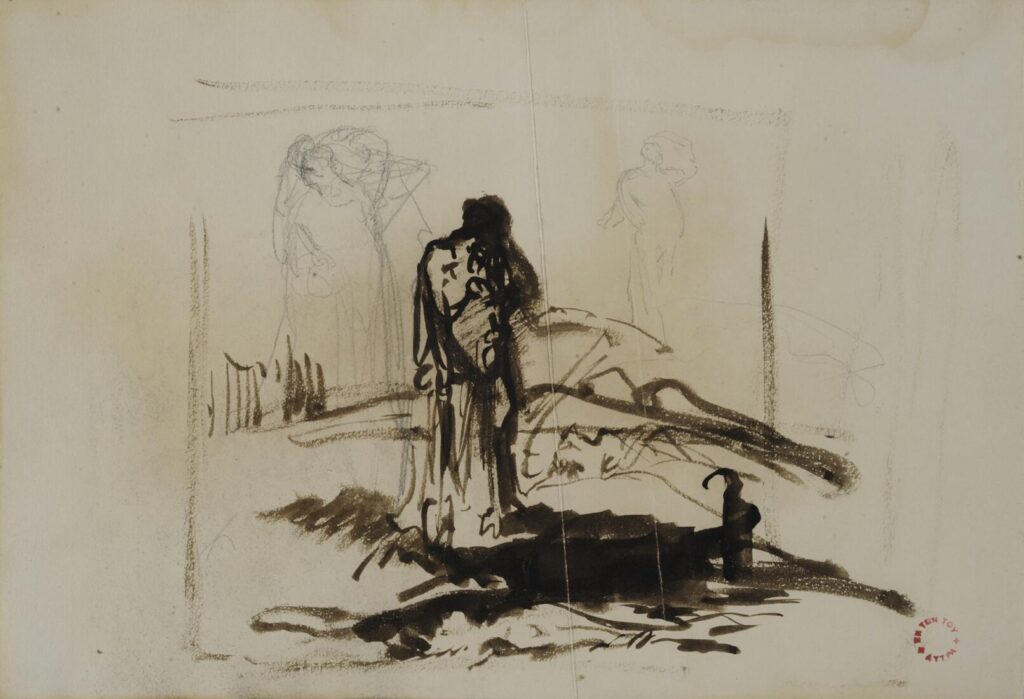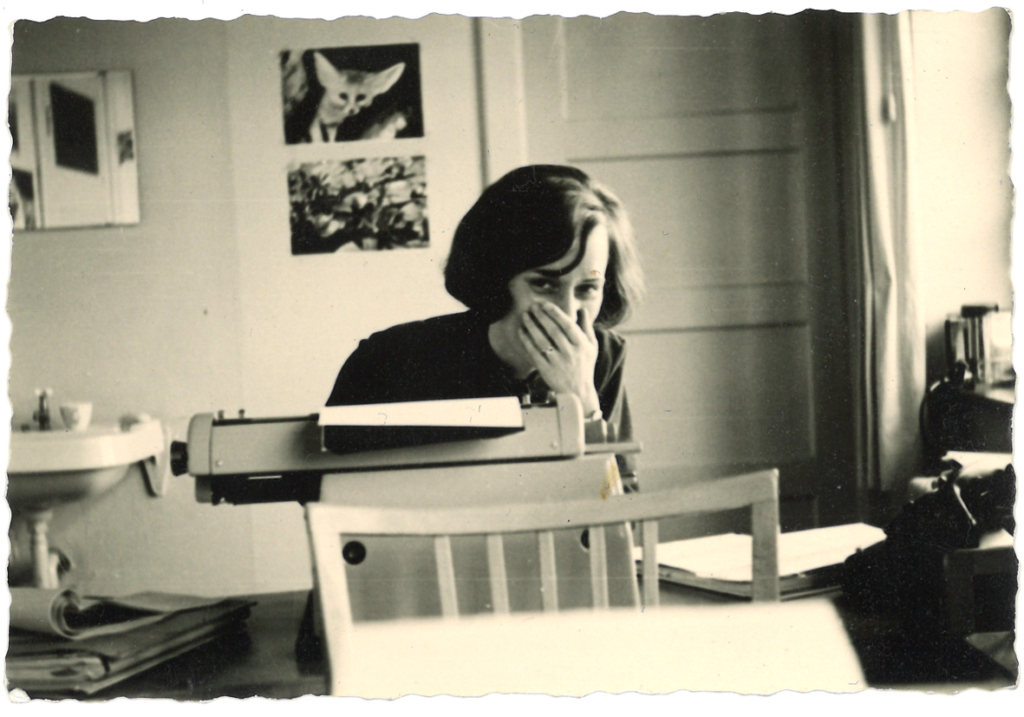Babelsprech International is a series created through the cooperation of Babelsprech and Hilda Magazine, in partnership with the American online magazine Full Stop, the platform faustkultur, as well as Samplekanon.
The series was initiated by Babelsprech, a two-year-old project striving to connect the German, Swiss, and Austrian poetry scenes, in order to move these respective scenes and their histories closer to each other for a younger generation. With this collection of essays, Babelsprech has decided to leave the German speaking sphere to work towards the possibility of a world society of poets.
Cooperating with three other online, international literature magazines, each addressing its own distinct audience and community, the series will introduce the contemporary poetry scenes of various countries to each other. Babelsprech International presents a series of essays by poets themselves, providing insight on disparate poetic communities and histories from an inside perspective.
Field Notes: New Developments in Slovakian Poetry
by Jaroslav Šrank
If one wants to know which inner resonances spring forth from developments in contemporary Slovakian poetry, it is useful to direct one’s gaze towards the turn of the millenium. This threshold did not bring as revolutionary an upheaval to the literary world as the fall of the Communist regimes in 1989. Yet since the end of the 90s, phenomena have accumulated that have finally led to the fundamentally new form of Slovakian literature we know today. The Slovakian literature of the 90s was still heavily marked by principles that were typical of the preceding phase. Ideology still played a major role in the literary scene. The dominating political policy, known as Mečiarism [after Vladimír Mečiar, prime minister of Slovakia in the 1990s, note of the German translator] even beyond Slovakian borders, tried to bind writers once more to representative functions by merely replacing the Communist ideology with a Nationalist one. In this way, an integration of literature took place (in the sense of creating a connection with different domestic and foreign traditions of ideas and aesthetics), and at the same time a new border between independent writers and those loyal to the regime was drawn. Within the scope of these counter-positions, many writers also took part in other important contemporary phenomena, including the commercialization of culture. A fundamental depoliticization only started after the elections of 1998 which heralded the end of Mečiarism. Since then, the impulses for Slovakian literary culture have tended to be dominated by the cultural-civilian sphere. Literature now has to find a new way of dealing with its existence in a globalized framework, with the dominance of commercial culture and the breakthrough of information technologies and digital media in all spheres of life.
Most works from around the turn of the millennium can be delineated along four lines of development that convey the differences and similarities between the activities of poets and poetics since around the end of the 80s. The first two, the poetry of non-conformist individualism and the poetry of the private, were still formed under the conditions of the Communist regime. In the 90s, another two strains were born: first spiritual poetry, and then the experimental-deconstructive avant-garde. With this deconstructive work as an exception, the poetry of that time was largely based on a subjectivism that rooted the lyrical subject in concrete experience. This perspective emerged through working with approved literary devices that stylized the subjectivity of the poet. The expressive poetry of non-conformist individualism (J. Urban, I. Kolenič, P. Bilý) emerges from the conflict between a liberally minded subject and mainstream society, and picks up the poetic impulse of the Beatniks. The much more sober [the concept of “civil poetry” that is common in the Czech Republic and Slovakia has been translated into “sober poetry” to facilitate understanding, note of the German translator] poetry of the private (M. Brück, M. Hatala, M. Vlado) reflects the mundane, and the writers try to sustain themselves with time-transcending, traditional values.
Spiritual poetry (E. J. Groch, R. Jurolek, M. Milčák) was a reflective-philosophical poetry that, in principle, reflected life from a Christian perspective either in a sober or an allegorical-mythological form. Its impulses came from worldwide sources of confessional and meditative poetry.
Thus, a conception dominated that saw poetry as a tool for an authentic expression of an autonomous subject. But soon poets appeared that were suspicious both of this, a highly-valued subjective empiricism, and of the communicational capabilities of literature. Authors of experimental-deconstructive poetry were inspired by foreign post-avant-garde art movements, and reacted with the impulses of postmodern philosophy, especially French post-structuralism, and at times even worked with pop-cultural imports. Their publishing organs were mainly the magazine Vlna and the publishing house Drewo a srd. In their works, they questioned the allegedly natural connection of the lyrical subject to its statements about the realities of life. They cast doubt on traditional poetic themes, habitual modes of expression, and experiential conventions of reception. They built on the discursive exposure of the borders and traps of literary communication, and of language in general. Typically, their approach was subversion, intellectual games, parody etc.
This kind of poetics was soon called anaesthetic. It was Peter Macsovszky who introduced it in his collections Strach z utópie (Fear and Utopia, 1994) and Ambit (1995). He captured his experiments, which were based on Dada, Conceptualism, and Minimalism, in a form of genre he called “sterile.” His work is characterized by a demonstrative avoidance of themes from concrete experience, and a textual structure in the form of montage, collage, ready-mades and assemblage. As material for his text installations, he used technical jargon and popular scientific descriptions and explanations. Newly assembled and transcribed into the context of artistic communication, they express the inadequacy, ambiguity, and ultimate unreliability of language as a medium of communication. These works realize bizarre, paradoxical, and sometimes desolate constellations of meaning. The poems are often self-referential in character and demonstrate ironically the absurdity of poetic conventions. Macsovszky’s starting point (inspired, amongst other things, by Michel Foucault’s The Order of Things) was to reduce the communicative content of the poems to an assertion of the impossibility of any kind of assertion. They achieved a philosophical clarity precisely through distance and humor. In this way, they express the failure of any kind of human attempt to “edit” the world.
Other writers devoted themselves instead to a reflection of contemporary socio-cultural events. In this school, the works of Peter Šulej (e.g. Návrat veľkého romantika [The return of the great romantic], 2001) and Michal Habaj (Korene neba. Básne z posledného storočia [Sky roots. Poems from the last century], 2000) are representative. Instead of constantly doubting the truth of concrete experience, they process the ambivalence of life in the post-industrial age, and in a consumer society in which virtuality surpasses reality. They work with an ambiguous, romantic-parodistic stylization of the subject into a cyborg, which is product rather than a consumer of new technologies. This corresponds to the digitalized-technicized imagery of their poetry. In the end of the 90s, Nóra Ružičková’s introspective debut Mikronauti (Micronauts, 1998) was released. Her experimental-deconstructive poetry is held together by how it questions not only the subject, but also its communication with the world and the mechanics of artistic communication. Her self-reflection aims to underline human identity as ontologically unsettled, coupled with imagery of fluid manifestations of the world. She plays with the ambiguity, suggestive power, and unreliability of the media through which people articulate themselves and their ideas. Ružičková is also a visual artist, and her literary works refer to her physical work and use techniques of action art, process art, concept art, pop-art and multimediality. Additionally, her writing is influenced by feminist philosophy and psychoanalysis.
Other notable writers (for example, Marián Kubica and Kamil Zbruž) also worked experimentally, though I’m not able to go into detail about their work here. But considering the rather modest past of radical experimentation in Slovakian poetry, this stabilization of such a poetical diversity in the first decade of the 21st century was remarkable and entirely new. Previous to this proliferation, experimental work in the classical sense of a concrete, phonetic, or visual poetry was, in Slovakia, practiced only by Milan Adamčiak, who has worked along the border of music, visual arts, and literature since the 60s. His visual poetry, graphical scores, and other works are now being collected under the title Archiv (there have been two volumes since 2012). The broad oeuvre of Jozef Klátika and Jaroslav Supek, who belong to a Slovakian enclave in the Serbian Vojvodina and used experimental, especially intermedial techniques in the 70s, remains largely unknown in Slovakia. The revelation of these older works strengthens the awareness of such alternative possibilities of poetry.
Additionally, Slovakian literature experienced in recent times — around the turn from the first to the second decade of this century — has presented a rapid innovation of digital media, leading to greater accessibility. Forms of literary presentation on the internet were strikingly expanded and improved. Social networks became a central aspect of the literary public. The global communication network allows us to get to know alternative art of the past and present from around the world in an almost completely unrestricted way. Points of virtual connection sometimes transform into direct contacts between Slovakian and foreign — especially Czech — writers. In the scope of these changes, the publicity of unconventional literature around the magazine Kloaka and the publishing houses Ars Poetica, Dive Buki and Literis were expanded. Additional publishing opportunities are offered by the portal www.membrana.sk, as well as the festival Siete and some Czech platforms (for example the magazines Psí víno and A2). In a related development, the pool of writers of experimental poetry has expanded. Agda Bavi Pain (with his debut Kosť & Koža [Skin & Bones] 2002) and Katarína Kucbelová (with her debut Duály, 2003) were early experimental poets whose work was widely recognized. Around ten years later, Michal Rehúš and Zuzana Husárová gained attention. Rehúš established himself as a publicist, critic, and editor, and is a follower of alternative currents, especially of conceptual writing. Husárová initiated new forms for presenting post-digital multimedia literature.
The principles of creation changed too. The programmatic integration of digital technologies and multimedia content became a trend not only in the presentation of poetic texts, but also during the process of creation. This was not an entirely new phenomenon. Since the 90s, writers have been working in transmedia or multimedia (for example the deconstructivists Macsovszky and Ružičková), and already at the end of the last century, M. Habaj, A. Hablák, Macsovszky, and P. Šulej released texts based on the principle of collective writing under the name Generator X (later Generator x_2).
Zuzana Husárová, among others, was especially active in this field. Together with programmer and musician Ľubomír Panák, she created numerous interactive pieces that are now available online, some of them intermedial installations and performances. Together with Amalia Roxana Filip, she applied herself to multimedia works as well. The books liminal (English version 2012, Slovakian version 2013) and lucent (2013) are also part of such projects. The book versions are based on a combination of verbal and visual language, and further dimensions are sound poetry and syncretistic performance (also available online). Husárová’s interests lie in the enunciation of often elemental emotions that swirl inside human beings and are alienated through technology. Her work focuses on the interaction and individual physical experience of external reality, which emphasizes the materiality of chosen language.
Besides this frenzy of technological possibility, interest in individual identity and existential questions also grew. In his book Klišémantra (2005, Macsovszky, for example, intermingles ironic commentary on the structural failures of different systems (scientific, artistic, ethical etc.) with grotesque images of everyday degeneration and physical and mental human failure. The books Beztvárie (The Formless Ones, 2004) by N. Ružičková and Michal Habaj (2012) by Michal Habaj can be seen as experiments with the poetic possibilities of exploring the incomprehensibility of one’s own ego.
A third prominent trend draws themes from cultural and social phenomena, with subjects that refer openly to contemporary events and problems of national or global scope. There is a conspicuous dissatisfaction with practices orientated towards consumerism, technocracy, and individuality. Some works address ecological problems (Mária Ferenčuhová: Ohrozený druh [Endangered species], 2012) or illustrate social tensions and power relations (Katarína Kucbelová: Vie, čo urobí [She knows what she is doing], 2013; Marcela Veselková: Identity [Identities], 2013).
Satirical poems are a specific form of social criticism aimed at gaps and blemishes in the reputation of contemporary writers (and other artists), in stark contrast to how they usually appear in the literary scene. Most notably, Vlado Šimek (Modlitba za Felvidék [Prayer for Felvidék], 2013) and Michal Rehúš produce work that operates in this way.
Rehúš’ debut, Program dekomunikácie (Program of Decommunication 2011) sets off from conceptual inspirations and works with some of the practices established in Slovakia by Macsovszký. He is guided by his lack of confidence in language as a reliable communication medium. This is demonstrated by bizarre manners of expressions, juxtaposition, and contamination of languages that belong to different spheres, as well as through absurd textual readymades (often instructions, manuals etc.). The main target is the abused language: language as an instrument of power. A similar project can be found in other contemporary works, as in the debuts of Erik Šimšík, Monorezeň & Stereozemiaky (Mono escalope & stereo potatoes, 2013), and Daniela Olejníková (on the cover deliberately misspelled as Daniela Olejnikov), KUR#Z praktickej poézie pre pokročilých (COUR#S of a practical poetry for advanced students, 2013).
Šimšík takes his inspiration from the historical avant-gardes as well as the dadaist negation of any kind of sense and purpose, and Olejníková works destructively with the rhetoric of courses for personal development, economy, advertising, and art criticism. It seems that several writers perceive the daily menace of mediated consumerist society, aimed at the autonomy of the individual person, as a key problem. N. Ružičková’s conceptual book práce & intimita (work & intimacy 2012) can also be seen from this perspective. It is composed entirely of the appropriation, adaptation and recontextualisation of expressions (recommendations, recipes, instructions) from popular magazines that reproduce stereotypical images of femininity. The result is not only an unmasking of the power of the media, but also a restoration of a free creative identity through humorous reprocessing.
These events in Slovakian poetry indicate strong dynamics in a search for new connections to the present times. In my opinion, they could be classified this way: here, experience is coupled with courage; there, rather warmed-up approaches from the already available pool can be found; these are still the first distinguished attempts to get a grip on the pulsating present; those have already set bigger tectonic entities in motion. But to predict who goes where through which obstacles seems to be inappropriate. The investigation shall continue.
Jaroslav Šrank (*1975 in Bratislava) devotes himself mainly to the analysis, interpretation and criticism of contemporary Slovakian poetry. He has published in Slovakian and international periodicals and in several anthologies. He works at the Institute for Slovakian Language and Literature at the Komenský University in Bratislava where he holds seminars on Slovakian literature of the second half of the 20th century. He was an editor at the literary magazine Romboid. Articles in Dejiny slovenskej literatúry III (History of Slovakian Literature III, 2004 and 2006, V. Marčok et al.) and Slovník slovenských spisovateľov (Encyclopedia of Slovakian Writers, V. Mikula et al., 2005), amongst others. He has published the books Autorské texty s folklórnou dimenziou (Literary texts with a folkloristic dimension, 2009), the literary study Nesamozrejmá poézia (Not-self-evident poetry, 2009) and the monograph Individualizovaná literatúra. Slovenská poézia konca 20. a začiatku 21. storočia z perspektívy nastupujúcich autorov (Individualised literature. Slovakian poetry from the end of the 20th to the beginning of the 21st century from the perspective of upcoming writers, 2013).
German translation by Lena Dorn
German version translated into English by Oravin
